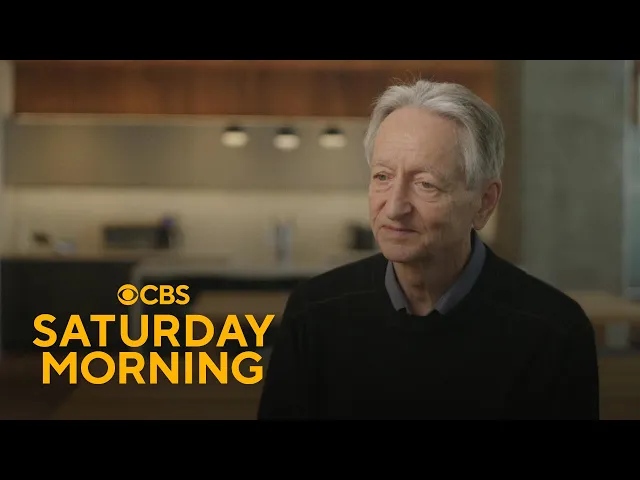AI pioneer Geoffrey Hinton says world is not prepared for what’s coming

AI's Nobel pioneer warns of tiger cub dangers
Geoffrey Hinton, the revolutionary AI researcher who helped spark our current machine learning renaissance, received a Nobel Prize in Physics last December for his groundbreaking work in neural networks. Having spent decades as an "outcast professor" pushing against mainstream scientific thought, Hinton now finds himself in the uncomfortable position of warning humanity about the very technology he helped create. In a recent interview, the 77-year-old pioneer shared his increasingly urgent concerns about artificial intelligence's rapid progression and the existential risks it poses.
Key insights from Hinton's perspective:
- AI development is accelerating far faster than even he anticipated, with capabilities arriving decades ahead of his own predictions
- He estimates a 10-20% risk that AI will eventually "take over from humans," comparing our relationship with AI to raising a tiger cub that may eventually become dangerous
- Today's AI leaders are prioritizing profits over safety, with insufficient resources dedicated to alignment research and active lobbying against meaningful regulation
- The potential for transformative benefits in education, medicine, and climate science exists alongside unprecedented risks of misuse and autonomous threats
The contrarian visionary sounds the alarm
What makes Hinton's warnings particularly compelling is his unique positioning in the AI landscape. Unlike many critics who lack technical expertise, Hinton pioneered the foundational concepts powering today's large language models back in 1986 when he proposed using neural networks to predict the next word in a sequence. This breakthrough approach, initially dismissed by the mainstream AI community, now forms the backbone of systems like ChatGPT and Claude.
"People haven't got it yet. People haven't understood what's coming," Hinton states with the weary clarity of someone who has seen this pattern before. Throughout his career, he has maintained an independent streak, moving to Canada when American AI funding required military partnerships and persisting with neural network research when the approach was widely ridiculed.
This contrarian perspective is precisely what makes his current warnings so significant. When someone who correctly predicted the future of technology against consensus opposition now expresses deep concern about where that technology is heading, we would be wise to listen carefully.
The disconnect between rhetoric and action
Perhaps most troubling is Hinton's assessment of how major AI companies are approaching safety. Despite public statements emphasizing responsible development, he observes that
Recent Videos
How To Earn MONEY With Images (No Bullsh*t)
Smart earnings from your image collection In today's digital economy, passive income streams have become increasingly accessible to creators with various skill sets. A recent YouTube video cuts through the hype to explore legitimate ways photographers, designers, and even casual smartphone users can monetize their image collections. The strategies outlined don't rely on unrealistic promises or complicated schemes—instead, they focus on established marketplaces with proven revenue potential for image creators. Key Points Stock photography platforms like Shutterstock, Adobe Stock, and Getty Images remain viable income sources when you understand their specific requirements and optimize your submissions accordingly. Specialized marketplaces focusing...
Oct 3, 2025New SHAPE SHIFTING AI Robot Is Freaking People Out
Liquid robots will change everything In the quiet labs of Carnegie Mellon University, scientists have created something that feels plucked from science fiction—a magnetic slime robot that can transform between liquid and solid states, slipping through tight spaces before reassembling on the other side. This technology, showcased in a recent YouTube video, represents a significant leap beyond traditional robotics into a realm where machines mimic not just animal movements, but their fundamental physical properties. While the internet might be buzzing with dystopian concerns about "shape-shifting terminators," the reality offers far more promising applications that could revolutionize medicine, rescue operations, and...
Oct 3, 2025How To Do Homeless AI Tiktok Trend (Tiktok Homeless AI Tutorial)
AI homeless trend raises ethical concerns In an era where social media trends evolve faster than we can comprehend them, TikTok's "homeless AI" trend has sparked both creative engagement and serious ethical questions. The trend, which involves using AI to transform ordinary photos into images depicting homelessness, has rapidly gained traction across the platform, with creators eagerly jumping on board to showcase their digital transformations. While the technical process is relatively straightforward, the implications of digitally "becoming homeless" for entertainment deserve careful consideration. The video tutorial provides a step-by-step guide on creating these AI-generated images, explaining how users can transform...
